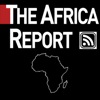 Ethiopia gets a record US$1.5 billion from Diaspora
Ethiopia gets a record US$1.5 billion from DiasporaEthiopia received a record US$ 1.5 billion from its citizens abroad during the just ended 2010/11 fiscal year, data released by the National Bank of Ethiopia (NBE) has revealed.
The figure, which represents money sent by Diasporans through banks, represents an 88 per cent growth from the previous year.©Reuters
During the 2009/209 financial year, Ethiopia, home to over 80 million people, received about US$ 780 million from its citizens.
Around one million Ethiopians are estimated to live in the United States of America, Europe and in other countries, mainly in the Middle East.
The state owned NBE introduced new policies to encourage Diasporans to send and save money locally.
For the first time the Diasporans were allowed to save money in foreign currency, a practice that was not allowed in the past.
The devaluation of Ethiopia’s Birr by more than 20 per cent last year has also encouraged more foreign currency inflows.
However, remittances are still very low compared to other countries that have less people living abroad.
NBE said as of June 30 total deposits at its branches dotted around the country stood around US$ 5 billion while total assets and capital of the bank reached over US$ 6 billion and around US$400 million respectively.
Ethiopia, which does not allow foreign financial institutions to open branches locally, has around 15 local private banks.
But analysts say the country needs at 40 more banks for the country’s financial services sector to be fully developed.
Comments